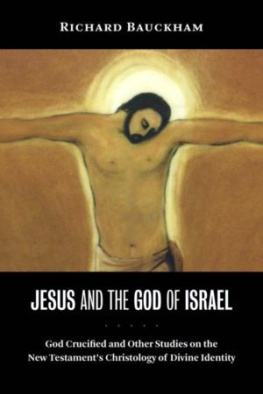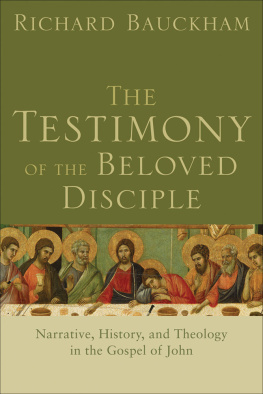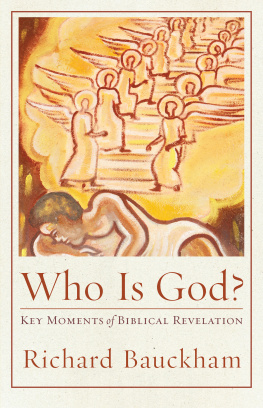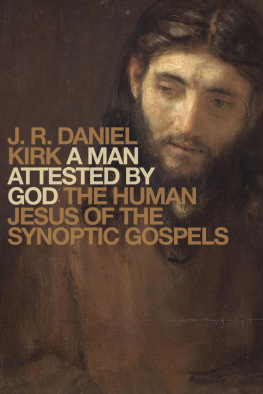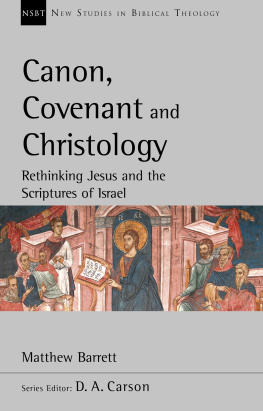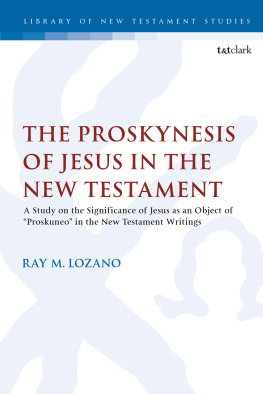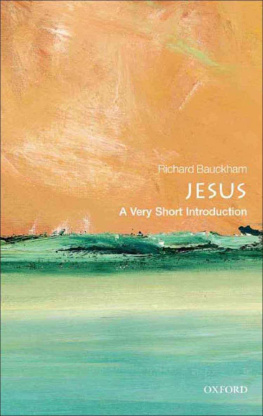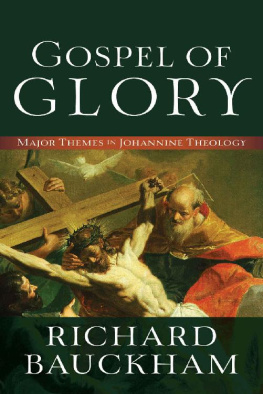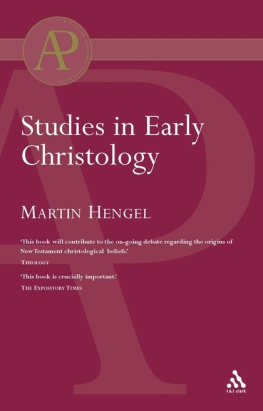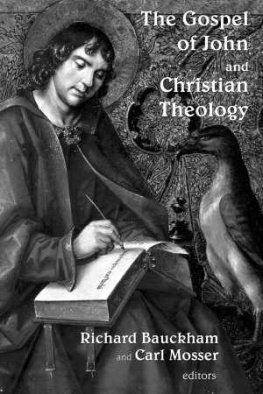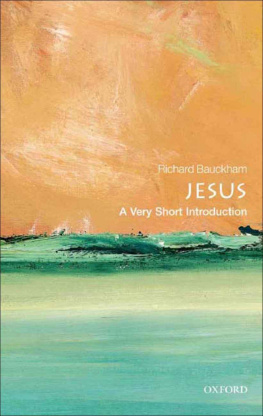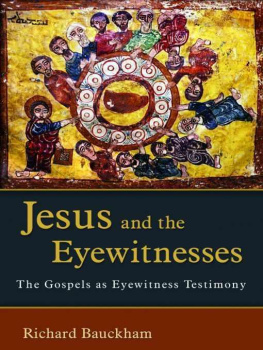JESUS AND THE GOD OF ISRAEL
JESUS AND THE GOD OF ISRAEL
God Crucified and Other Studies
on the New Testament's Christology
of Divine Identity
Richard Bauckham





To co-workers in early Christology
JIMMY DUNN
LARRY HURTADO
Contents
ix
Introduction
For a small book it seems to have made a large impact. This is because it was a concise argument for a new proposal for understanding early Christology in its Jewish context. That book forms chapter 1 of the present collection, while the other chapters are further studies developing aspects of the proposal in more detail.
In God Crucified, I take current scholarly discussion about the nature of Jewish monotheism in the Second Temple period and attempts to find Jewish precedents for early Christology as my starting points, and argue that recently popular trends to find a model for Christology in semi-divine intermediary figures in early Judaism are largely mistaken. Working with the key category of the identity of the God of Israel - which appropriately focuses on who God is rather than what divinity is - I show that early Judaism had clear and consistent ways of characterizing the unique identity of the one God and, thus, distinguishing the one God absolutely from all other reality. When New Testament Christology is read with this Jewish theological context in mind, it becomes clear that, from the earliest post-Easter beginnings of Christology onwards, early Christians included Jesus, precisely and unambiguously, within the unique identity of the one God of Israel. They did so by including Jesus in the unique, defining characteristics by which Jewish monotheism identified God as unique. They did not have to break with Jewish monotheism in order to do this, since monotheism, as Second Temple Judaism understood it, was structurally open to the development of the christological monotheism that we find in the New Testament texts.
The earliest Christology was already the highest Christology. I call it a Christology of divine identity, proposing this as a way beyond the standard distinction between 'functional' and 'ontic' Christology, a distinction which does not correspond to early Jewish thinking about God and has, therefore, seriously distorted our understanding of New Testament Christology. When we think in terms of divine identity, rather than divine essence or nature, which are not the primary categories for Jewish theology, we can see that the so-called divine functions which Jesus exercises are intrinsic to who God is. This Christology of divine identity is not a mere stage on the way to the patristic development of ontological Christology in the context of a Trinitarian theology. It is already a fully divine Christology, maintaining that Jesus Christ is intrinsic to the unique and eternal identity of God. The Fathers did not develop it so much as transpose it into a conceptual framework more concerned with the Greek philosophical categories of essence and nature.
The inclusion of Jesus in the unique, divine identity had implications not only for who Jesus is but also for who God is. This forms the second half of the argument of God Crucified. When it was taken seriously, as it was in the major forms of New Testament theology, that not only the pre-existent and the exalted Jesus, but also the earthly, suffering, humiliated and crucified Jesus belongs to the unique identity of God, then it had to be said that Jesus reveals the divine identity - who God truly is - in humiliation as well as exaltation, and in the connection of the two. God's own identity is revealed in Jesus, his life and his cross, just as truly as in his exaltation, in a way that is fully continuous and consistent with the Old Testament and Jewish understanding of God, but is also novel and surprising. While the Fathers successfully appropriated, in their own way, in Nicene theology, the New Testament's inclusion of Jesus in the identity of God, they were less successful in appropriating this corollary: the revelation of the divine identity in Jesus' human life and passion. To see justice done to this aspect of New Testament Christology we have to turn to the kind of theology of the cross which Martin Luther adumbrated and which has come into its own in the twentieth century.
God Crucified does not provide the detailed study of the texts and the thorough interaction with other interpretations of Jewish monotheism, New Testament Christology, and the key early Jewish and early Christian texts, which will be needed in order to establish my arguments adequately in the context of current scholarly discussion. But, as a concise statement of my case, uncluttered by too much detail of exegesis and scholarly apparatus, many readers have found it useful. So it stands in first place in the present book as a statement of the broad proposal to which the other essays, as more detailed explorations of specific aspects of the proposal, are supplementary. These other essays were written originally for particular contexts and occasions (conferences and multi-authored volumes), though some have been revised and extended for the present volume. They are not yet the fully comprehensive study (provisionally entitled 'Jesus and the Identity of God: Early Jewish Monotheism and New Testament Christology') that I promised in the preface to God Crucified. They are more like working papers on the way to that book. Because of their origins as independent essays, each is a self-contained essay, intelligible in itself, and so they do not need to be read in the order in which they appear here, and readers can pick out those that initially interest them most. While not yet comprising the comprehensive study on which I continue to work, together they certainly provide much evidence and argument in support of the proposal made in God Crucified. Readers interested in the nature of monotheism in the Hebrew Bible and Second Temple Judaism will find much fresh material here, while readers interested in New Testament Christology will see how my proposal that a Christology of divine identity was the common form of all early Christology can be supported and developed in the cases of Paul, Hebrews and the Gospel of Mark. To a large extent these essays focus on the first half of the argument of God Crucified, but the last, which focuses on the understanding of Jesus' death in Mark's Gospel, makes a contribution to the further study of the line of thought adumbrated in the second half of that book (here the second half of chapter 1).
In the decade during which these essays were written and, in some cases, presented as conference papers or lectures, I have incurred many debts to those who have commented on them, alerted me to relevant material, asked questions - sometimes very penetrating ones - and offered criticism - sometimes quite radical - of my arguments and approach. I believe the essays are the better for having taken on board these helpful and challenging interactions. I have also been much encouraged by many readers of God Crucified who have e-mailed, written or spoken to me, conveying their appreciation of the book and the ways in which they have found it helpful. They have helped me retain the sense that this large research project, which must certainly continue for some time to come, is worth pursuing with as much thoroughness as I can achieve. People frequently ask when the full and detailed study is going to appear. I hope that, despite the delay of the latter, they will find some of their questions answered in this present collection.

